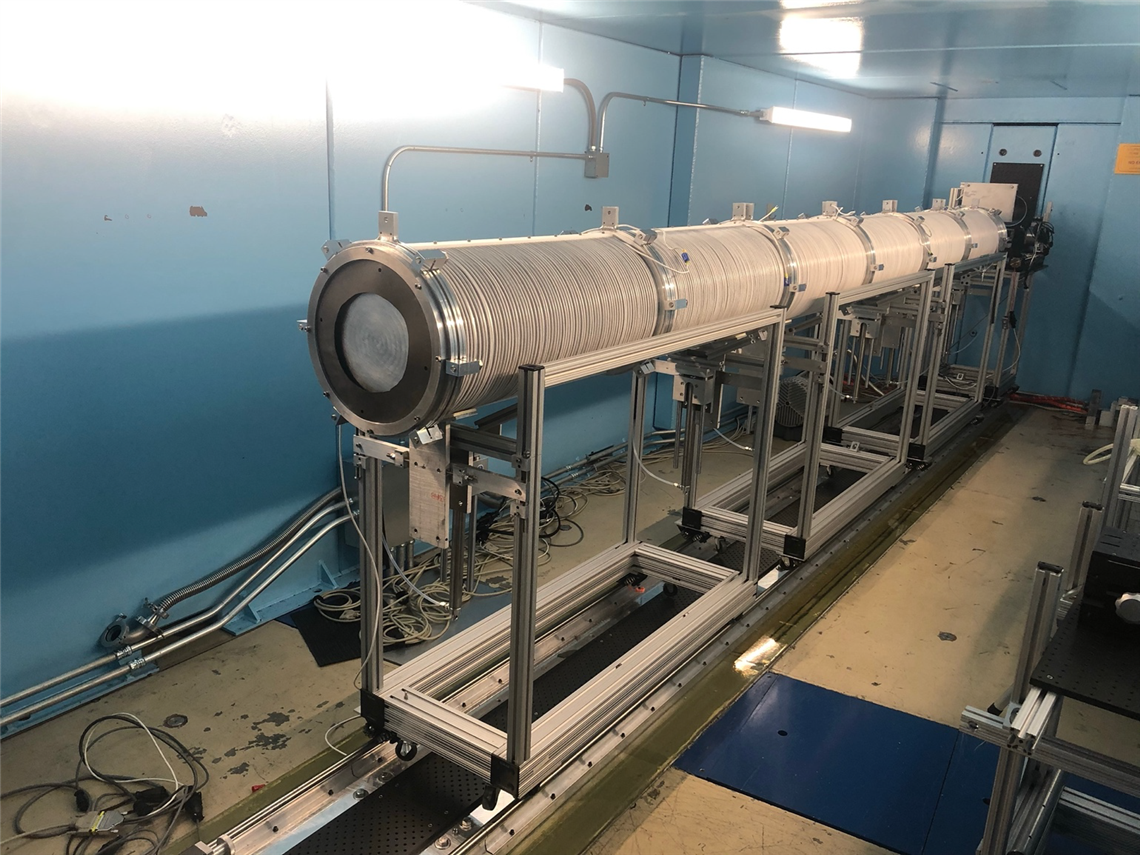New EU research on energy storage batteries
08 March 2021
 The Consortium for Battery Innovation project utilizes the NG6 cold neutron imaging instrument at the National Institute of Standards and Technology to provide imaging for the European team of scientists.
The Consortium for Battery Innovation project utilizes the NG6 cold neutron imaging instrument at the National Institute of Standards and Technology to provide imaging for the European team of scientists.
As the EU aims to become a world-leader in sustainable battery technology and manufacturing, the Consortium for Battery Innovation (CBI) has launched a new European research project using neutron diffraction in a bid to improve the lifetime of energy storage batteries.
The high-tech process, which images the entire crystal structure of the battery as it operates, allows battery experts to observe and control the processes impacting battery life and performance. The project is being conducted in collaboration with the Instituto de Nanociencia y Materiales de Aragón (INMA) and EU-based battery company Exide Technologies. It is one of a range of advanced battery innovation studies underway funded by CBI.
The project utilizes the NG6 cold neutron imaging instrument at the National Institute of Standards and Technology (NIST, US) to provide imaging for the European team of scientists. As countries target rapid carbon reduction in the battle to halt climate change, battery energy storage is set to be one of the defining technologies of the century, with demand predicted to grow to 20,000 MWh by 2025. Advanced lead batteries are a critical part of this landscape, with Europe home to leading manufacturing, recycling and research capability.
Scientists will be joining forces from INMA, a joint institute between one of Spain’s oldest universities, the University of Zaragoza, and the largest public research institution in Spain and third largest in Europe, the Spanish National Research Council (CSIC) and Exide Technologies, a global battery company through one of its R&D centers based near Madrid. They will study the fundamental processes that govern recharge efficiency and battery electrode failure using a suite of neutron beamline experiments.
Through a specific focus on battery electrodes, which transfer energy to and from the electrolyte in order to power the polarized device to which they connect, neutron diffraction will be used to study the batteries in operation across different duty cycles. For energy storage applications, many of which incorporate renewable energy elements, advanced lead batteries operate at partial-state-of-charge (PSoC) and in high depth-of-discharge (DoD), both demanding duty cycles.
“The ability to probe battery electrodes inreal-time under typical energy storage duty cycles will deliver vital insights into how to enhance performance and the overall lifetime of the battery,” said Dr. Alistair Davidson, director of the CBI. “This information is a critical part of our advanced battery research program which aims to ensure advanced lead batteries continue to innovate to meet heightened demand for clean, renewable energy storage across the globe”.
Neutron diffraction is capable of not only mapping the activity of the surface of the electrodes, but the entire electrode and electrolyte present in the battery. This provides a complete picture of how battery electrodes are changing at the micro-level, something never-before done in lead battery research. By describing the electrode phenomena that govern battery lifetime, the research is generating new information on how to control the active material and maximize battery life in all applications for advanced lead batteries, a key goal in CBI’s technical roadmap.
Demand for clean energy storage continues to soar across Europe and further afield, and pioneering research will be significant in ensuring advanced lead batteries continue to innovate to meet the future technical requirements of these systems.
STAY CONNECTED




Receive the information you need when you need it through our world-leading magazines, newsletters and daily briefings.
POWER SOURCING GUIDE
The trusted reference and buyer’s guide for 83 years
The original “desktop search engine,” guiding nearly 10,000 users in more than 90 countries it is the primary reference for specifications and details on all the components that go into engine systems.
Visit Now
CONNECT WITH THE TEAM









